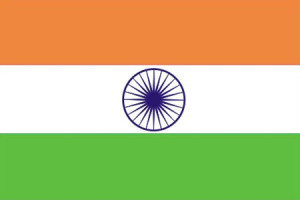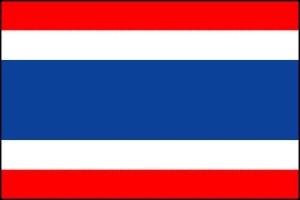24.Shelar-Uttam-B.-Thorve-Sandip-S.-Lokhande-Vinayak-H.-pdf
Full size is 1058 × 1497 pixels
1. Peer Review and Publication Policy
2. Publication Ethics and Malpractice Statement
Peer-review is the system used to assess the quality of a manuscript before it is published. Reviewers in the relevant research area assess submitted manuscripts for originality, validity, and significance to help editors to determine whether the manuscript should be published in the journal.
Initial manuscript evaluation
The Editor first evaluates all manuscripts. It is rare, but it is possible for an exceptional manuscript to be accepted at this stage. Manuscripts rejected at this stage are insufficiently original, have serious scientific flaws, have poor grammar or English language, or are outside the aims and scope of the journal. Those that meet the editorial policies and a minimum quality level are normally passed on to at least 2 experts for review.
Type of Peer Review
The journal employs the double-blind peer review process, where both reviewers and authors remain anonymous throughout the review process.
How the Reviewers is selected
Whenever possible, Reviewers are matched to the paper according to their expertise and our database is constantly being updated.
Reviewer’s reports
Reviewers are asked to evaluate whether the manuscript: – Is original – Is methodologically sound – Follows appropriate ethical guidelines – Has results which are clearly presented and support the conclusions – Correctly references previous relevant work.
Language correction is not part of the peer review process, but Reviewers may, if so wish, suggest corrections to the manuscript.
How long does the review process take?
The time required for the review process is dependent on the response of the Reviewers. Should the Reviewer’s reports contradict one another or a report is unnecessarily delayed, a further expert opinion will be sought. In rare cases for which it is extremely difficult to find a second Reviewers to review the manuscript, or when the one Reviewer’s report has thoroughly convinced the Editor, decisions at this stage to accept, reject or ask the author for a revision are made on the basis of only one Reviewer’s report. The Editor’s decision will be sent to the author with recommendations made by the Reviewers, which usually includes verbatim comments by the Reviewers. Revised manuscripts might be returned to the initial Reviewers who may then request another revision of a manuscript.
Final report
A final decision to accept or reject the manuscript will be sent to the author along with any recommendations made by the Reviewers and may include verbatim comments by the Reviewers.
Editor’s Decision is final
Reviewers advise the editor, who is responsible for the final decision to accept or reject the article.
It is necessary to agree upon standards of expected ethical behavior for all parties involved in the act of publishing: the author, the journal editor, the peer reviewer and the publisher. Our ethic statements are based on COPE’s Best Practice Guidelines for Journal Editors.
The journal is dedicated to following best practices on ethical matters, errors, and retractions. Any kind of unethical behavior is not acceptable, and the Editorial board do not tolerate plagiarism in any form.
Authors submitting articles to journal affirm that manuscript contents are original.
When plagiarism has been found to have occurred, the Editorial Board will take the actions as determined by the type of plagiarism. Unless determined otherwise during the investigation, all authors are deemed to be individually and collectively responsible for the content of a plagiarizing paper. Editorial Board places the investigation of each claim of plagiarism at the highest priority for resolution and action.
All papers in the journal are licensed under a Creative Commons Attribution 4.0 International License, which permits unrestricted use, distribution, and reproduction in any medium, even commercially as long as the original work is properly cited.
Authors retain copyright of their work. Once the material has been accepted for publication, authors are asked to sign a copyright form verifying that they have the right to publish the material and that they grant permission to the journal to publish their work online. In addition:
 |
Amitkumar Anandrao Khade PhD
Editor in Chief, Rangtarang, Shastrinagar, Malkapur, Karad. Dist. Satara. Maharashtra, India. Google Scholar Profile: Click for details Email: [email protected] |
 |
Dr. Namdeo Jadhav PhD
Dean, Krishna Vishwa Vidyapeeth (Deemed to be University), Krishna Institute of Pharmacy Karad, Dist. Satara Maharashtra, India. Google Scholar Profile: Click for details ResearchGate Profile: Click for details |
 |
A. M. Pawar Research Specialist, Harvard Medical School, Dept. of Medicine, United States. Email: [email protected] |
 |
Dr. S. Balaabirami DBT- Postdoctoral Fellow, Department of Biotechnology (AIM) Lab, Indian Institute of Technology Madras [IIT], Chennai, INDIA. Email: [email protected] |
 |
Dabbu Kumar Jaijyan, Ph.D. New Jersey medical School, Rutgers University, USA Email: [email protected] |
 |
Rita Akosua Dickson, PhD Faculty Of Pharmacy & Pharm. Sci. College Of Health Sciences Kwame Nkrumah University Of Science & Technology Accra Rd, Kumasi, Ghana. Email: [email protected] |
 |
Sunday O. Otimenyin, PhD Department Of Pharmacology, University Of Jos, Jos, Plateau State, Nigeria. Email: [email protected] |
 |
Dr. K. B. Burade, PhD Principal, Government College of Pharmacy, Ratnagiri, Maharashtra, INDIA. Email: [email protected] |
 |
Dr. Subhash C. Mandal Pharmacognosy and Phytotherapy Research Lab, Dept. of Pharmaceutical Technology, Jadavpur University, Kolkata, INDIA. Email: [email protected] |
 |
Pharkphoom Panichayupakaranant, PhD Department Of Pharmacognosy And Pharmaceutical Botany, Faculty Of Pharmaceutical Sciences, Prince Of Songkla University, Thailand. Email: [email protected] |
 |
Sukalyan Kumar Kundu, PhD Professor, Department Of Pharmacy, Jahangirnagar University, Savar, Dhaka, Bangladesh. Email: [email protected] |